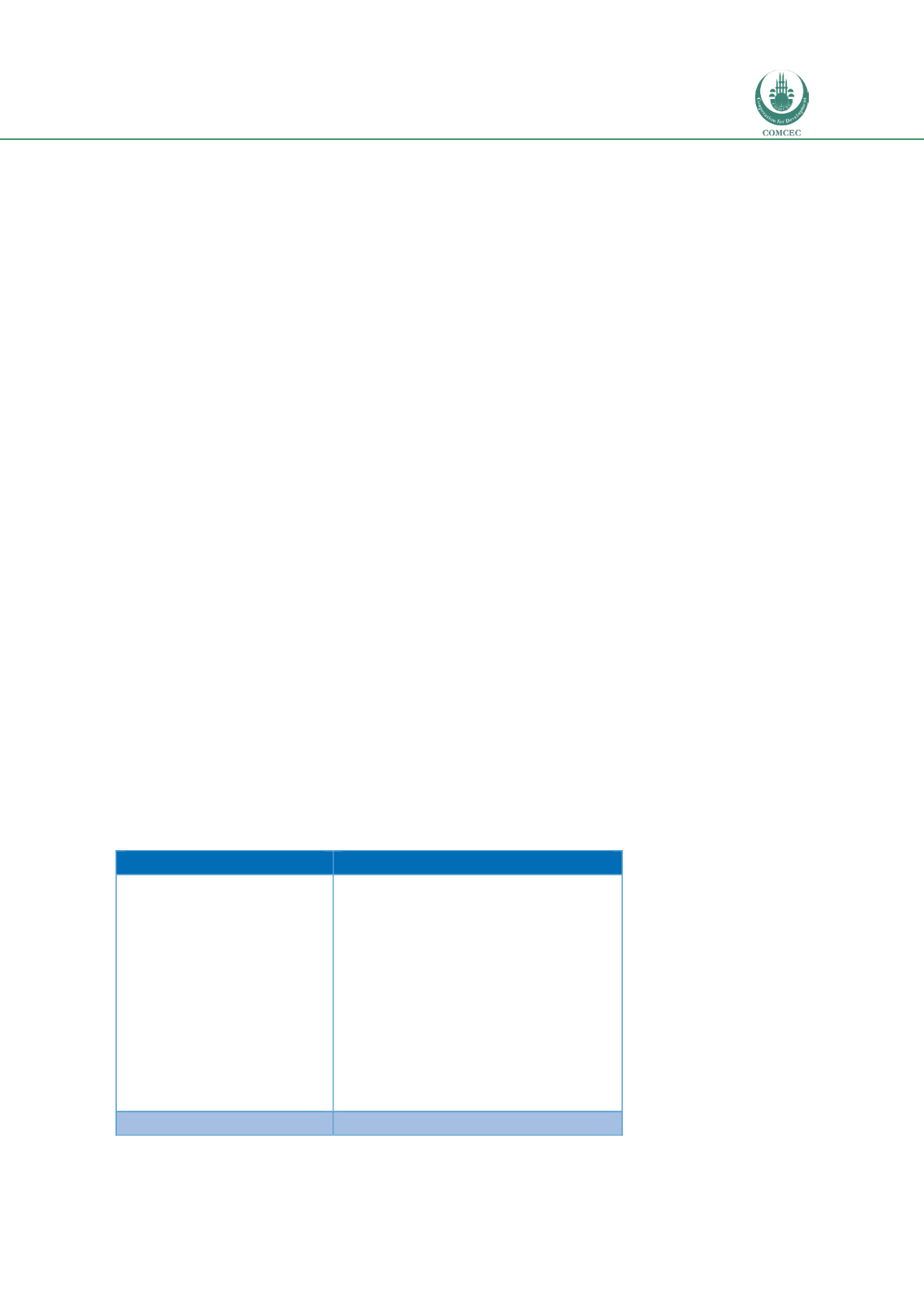

Improving Road Safety
in the OIC Member States
109
A number of express routes, routes linking vital major urban centres, are also under
development including high quality transport links to the Port of Kribi and high quality links
between Edea and Bafoussam and between Douala and Limbe.
According to the Ministry of Public Works there is also a new network development programme
being developed and in which specific attention is to be given to the expansion of weighbridges
to control the ongoing and severe problems being caused by overloading of especially cross-
border traffic. It is anticipated that overload control will form part of the concession agreements
although issues surrounding the privatisation of this function has yet to be resolved.
10.5 Vehicles
Making certain safety features compulsory to vehicles using the road network, lobbying
manufacturers to provide standard safety features, prohibiting certain vehicles, campaigning
among potential buyers to buy vehicles with higher safety ratings etc. are all actions that are
supportive of the concept of safer vehicles.
Cameroon has no vehicle industry of its own and its vehicle standards, including safety
standards are strongly dictated by terms and conditions set out in various CEMAC agreements.
The country has no standards authority that focusses on standards for vehicles but MATGENIE
(a company of government) is in charge of approval of the standards of new vehicles in
Cameroon. The import of vehicles older than 10 years is not permitted although there are
apparent means by which unscrupulous importers are managing to circumvent this restriction.
There are 25 vehicle control centres all over the country.
Vehicle population
Table 23shows the composition of the fleet of vehicles operating in Cameroon in 2012. Figures
from the latest national statistics (Transtat, 2014), reveal that the total vehicle population has
grown to 674,246 vehicles in 2014.
Table 23: Vehicle fleet size in 2012
Vehicle type
1.
Number of registered vehicles
Bus and coach
Truck
Logging truck
Minibus
Motorcycle
Pickup
Trailer
Semi-trailer
Tractor (Agriculture)
Tractor truck (Horse)
Scooter
Private vehicle (cars)
Other
44,87
10,144
9
5,539
224,989
20,481
67
3,033
163
3,656
3
169,234
1,213
Total
443,018
Source: Luca Persia et al., 2015.
















